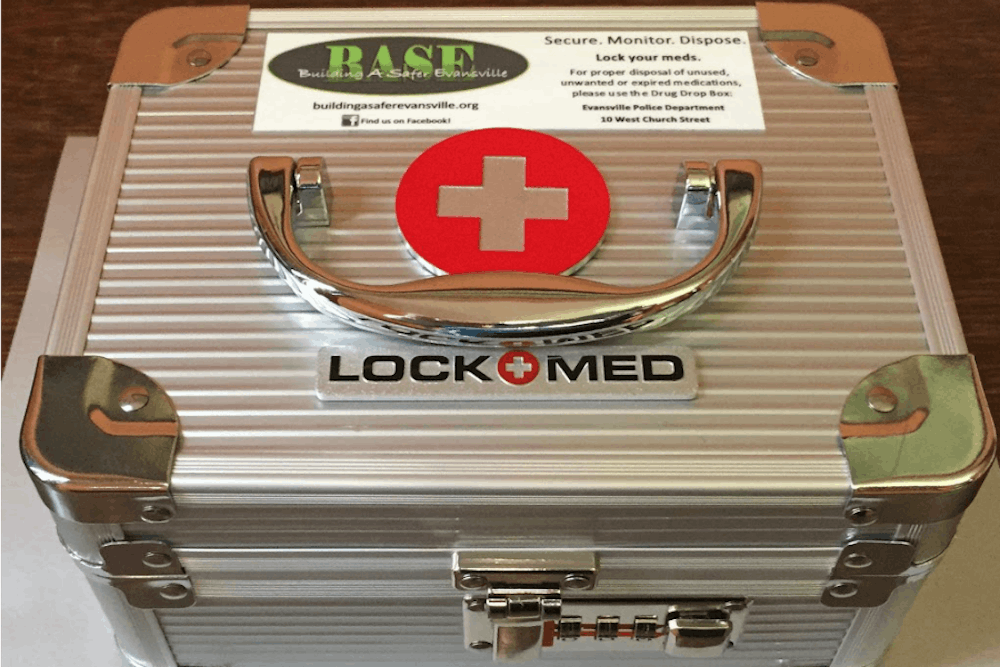Miami students can now better protect their prescription medications because of a new pilot program that secures those medications in lock boxes.
Student Counseling Services and the Alcohol and Other Drug (AOD) Workgroup, a subgroup of the Coalition for Health Community-Oxford area, rolled out the lock box program last November.
"By offering medication lock boxes to patients with prescribed controlled substances, the goal is to change the way that residents think about medication and decrease the overall access that community members, including our students, have to unmonitored medications," said Janae Arno, chair of AOD.
The program began with 75 lock boxes, 25 of which were dispersed free of charge among different populations in the area - pediatrics, seniors and Miami University students, respectively.
After those 25 were given out, more students heard about the program and requested lock boxes, too, Arno said.
Arno has applied for a grant through Generation Rx to receive funding for an additional 400 lock boxes, the amount Student Counseling Services said it could use for a year's supply.
One lock box costs $23, but the goal is to give them to students free of charge.
"By providing them free of charge, it not only ensures their availability, it creates the awareness and education around the importance of monitoring and securing prescription medications," Arno said.
A 2014 survey from the Partnership for Drug-Free Kids found that one in five students report misusing or abusing prescription medications at least once in their lifetime compared to one in seven for non-students.
"The reasons young people give for abusing these Rx medications revolve around functional goals such as studying, working or staying awake," the survey said.
Half the respondents cited "to study or improve academic performance" as the reason for misusing and abusing prescription medications.
The lock boxes act not only as security, but also as an educational tool. On the top of each lock box is a two inch by three inch sticker with an overview of prescription drug facts and tips.
For instance, that it is a felony to share or sell controlled substances and that, when finished with the medication, the individual should dispose of any unused medications at the Miami University Police Department.
According to the Ohio Department of Health, unintentional drug overdoses caused the deaths of 2,482 Ohio residents in 2014 based on the preliminary data. This is an increase of 17.6 percent from the previous year.
Prescription opioid-related deaths accounted for 46.5 percent of those overdose deaths, an increase of 34.4 percent over the previous year.
One of the contributing factors to accidental overdoses and prescription drug abuse is the access and availability of those medications, which the lock box program was initiated to help prevent.
The 2014 survey found that students see "tangible rewards for abusing prescription stimulants," as six in 10 indicate that doing so helped him or her obtain a higher grade, improve work performance or gain a competitive edge.
More than half of the students who responded to the survey said they are acquiring prescription drugs from friends, and that it is easy to do so.
"Our community-level goal is to promote the lock boxes and encourage them in every home and residence hall in our community," Arno said.

